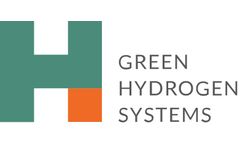hydrogen conversion Articles
-
Hydrogen production by catalytic methane decomposition and catalyst regeneration by oxygen mixtures in fluidised and fixed bed reactors
In the present paper, the Thermo-Catalytic Decomposition (TCD) of methane has been investigated in a laboratory-scale bubbling fluidised bed reactor using copper dispersed on γ-alumina as a catalyst. The usefulness of a fluidised bed operation instead of a fixed bed operation has been assessed in terms of methane-to-hydrogen conversion and the amount of carbon accumulated on the catalyst. The ...
-
Synergistic energy conversion processes using nuclear energy and fossil fuels
This paper reviews the methods of producing energy carriers, such as electricity, hydrocarbons and hydrogen, by utilising both nuclear energy and fossil fuels synergistically. There are many possibilities for new, innovative, synergistic processes, which combine chemical and nuclear systems for efficient, clean and economical production of energy carriers. Besides the individual processes by each ...
-
New life for the artificial leaf?
Research in laboratories around the world is moving the promise of artificial photosynthesis closer to reality Sandwiched between rows of bottled chemicals and racks of drying glassware on the third floor of Harvard University’s Mallinckrodt laboratory, four thumbnail-size bits of pinstriped silicon hang from a thin metal wire like T-shirts on a clothesline. For something with the ...
By Ensia
-
The technoeconomic assessment of the hydrogen fuel chain
Options for hydrogen fuel chain are compared with the existing petroleum-based fuel chain for transportation. The criteria used are the life cycle cost (Rs/km), Greenhouse Gas (GHG) emissions (g/km) and Nonrenewable Energy (NRE) consumption (MJ/km). Four hydrogen production methods, one hydrogen transport method, three hydrogen storage methods and two on-board energy conversion methods are ...
-
Project with Ørsted - Case Study
The aim of project, known as H2RES, is to produce renewable hydrogen fuel for heavy-duty road transport. A plant will be built around 5 HyProvide™ A90 electrolysers powered by two offshore wind turbines. Key Facts 5 x A-Series A90 Product 975 Production (kg H2/day) 28 Outlet pressure (bar) Denmark Project location Demonstration of large-scale ...
Need help finding the right suppliers? Try XPRT Sourcing. Let the XPRTs do the work for you
